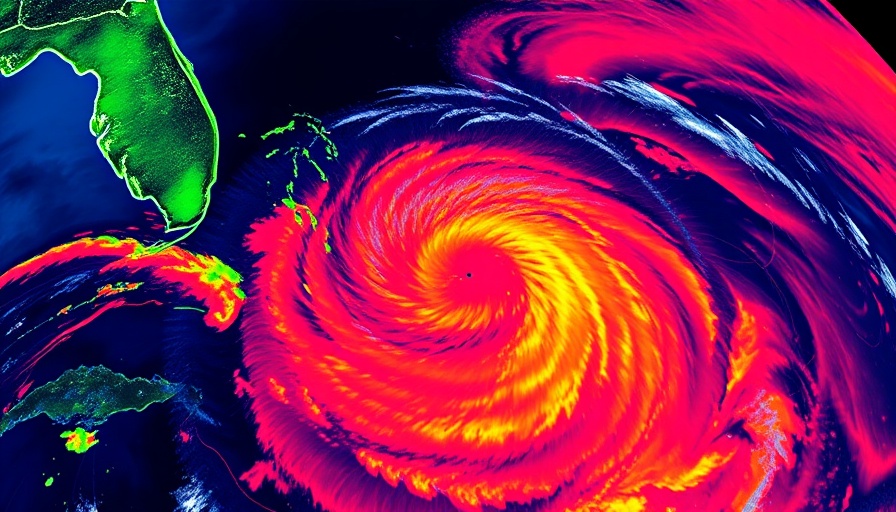
Job Cuts at NOAA: A Cause for Concern in Hurricane Forecasting
The recent announcement of significant job cuts at the National Oceanic and Atmospheric Administration (NOAA) has left many forecasters and scientists worried about the future of hurricane forecasting. With predictions of stronger and more frequent storms due to climate change, these cuts could severely impact our ability to accurately predict hurricanes and protect lives in vulnerable areas like San Antonio and beyond.
The Chain Reaction of Job Cuts
As NOAA terminates a workforce that includes critical hurricane research personnel and weather forecasters, the ramifications for public safety are troubling. According to reports, the cuts will lead to a decrease in the number of flights conducted by NOAA's Hurricane Hunters, the specialized aircraft that fly into storms to collect vital data. These aircraft play an essential role in providing data that informs hurricane forecasts and warnings.
Greg Allen from NPR highlights that these layoffs encompass key staff members at NOAA's aircraft operation center and the Environmental Modeling Center. The loss of experienced forecasters and aircraft operations staff raises questions regarding the reliability of hurricane predictions during a period of heightened storm activity.
The Value of Accurate Forecasting
Understanding hurricane behavior is critical for minimizing damage and saving lives. Research shows that NOAA's data collection through its Hurricane Hunters has led to significant advancements in forecasting accuracy. For instance, according to a study, integrating this data has drastically reduced forecast errors, resulting in billions of dollars saved in disaster response and preparedness.
The analysis suggests that during past hurricane seasons, forecasts informed by NOAA's data resulted in effective warnings that allowed populations in affected areas to take necessary actions before storms made landfall. As seen with hurricanes Milton and Beryl in 2024, accurate intensity forecasts can mean the difference between life and death.
A Broader Implication on Climate Resilience
Experts argue that NOAA's cuts not only impact local forecasting but also elevate risks nationally. With data collection becoming increasingly limited, future hurricane forecasts might lack the precision needed to keep communities safe, particularly in areas subject to severe weather patterns exacerbated by climate change.
Retired NOAA staff member James Franklin remarked on the importance of retaining skilled personnel, stating that many individuals let go possess institutional knowledge that cannot easily be replaced. This fear is echoed by other weather professionals, emphasizing that the integrity of forecasting is at stake as fewer resources are allocated to this vital science.
Resilience Through Community Engagement
As NOAA undergoes these transitions, it is imperative for local communities to stay informed and engaged. Understanding the implications of these budget cuts can empower residents to advocate for continued funding for weather services that play a critical role in public safety.
Residents in San Antonio and other areas prone to hurricanes should consider participating in community workshops, tuning in to local news stations like CBS San Antonio for the latest developments, and communicating with their representatives about the necessity of supporting weather forecasting resources.
Conclusion: Advocating for a Stronger Future
The impact of NOAA job cuts reverberates through communities, affecting not just hurricane forecasts but the resilience and preparedness of regions at risk. Advocacy for scientific integrity and funding is crucial as we face increasing threats from climate change. Constituents must remain vigilant, understand the stakes, and push for policies that protect the services essential for public safety—because when it comes to hurricanes, accurate forecasting is not just important; it’s lifesaving.
Take action today: contact your local representatives, attend community discussions on weather preparedness, and stay informed through reliable news sources. Together, we can advocate for a more resilient and informed society regarding weather safety.
 Add Element
Add Element  Add Row
Add Row 



 Add Row
Add Row  Add
Add 


Write A Comment